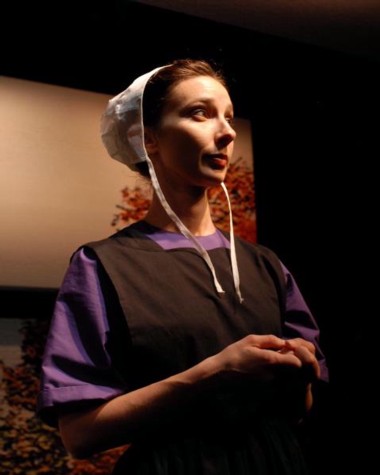Every year or so I give myself a disagreeable chore, always hoping it will be less depressing than last time. I look at the plays presented in the region’s theaters to see how many are by, or directed by, women. And I’m usually disappointed.
It’s a sad fact and a perennial disgrace that, although a majority of directors and dramatists working, or at least trying to work, in the theater today are women—not to mention that a majority of theater ticket buyers are, too—most of the plays produced by professional theaters around the country are still written and directed by men.
I’ve just looked back at this year’s summer theater season in the Valley and the Berkshires, and the disparity in is as shameful as ever. Here are the stats:
Out of 35 full productions at the area’s six professional legit theaters, only four were written by women and eight had women directors. It gets worse. Three of those four plays were seen at a single theater, Chester Theatre Company, which produced Caryl Churchill’s A Number, Leslie Ayvazian’s High Dive and Jessica Dickey’s The Amish Project.
New Century Theatre weighed in with The How and the Why, by Sarah Treem, a two-woman drama that was also directed by a woman, Sheila Siragusa (the summer’s only play to score that double). Half of the six-member creative team responsible for Working on a Special Day, at Barrington Stage, were women, and Shakespeare & Company also gets half a point for The Servant of Two Masters, the 18th-century farce by Carlo Goldoni, adapted and directed by Jenna Ware. But at the Berkshire Theatre Group and Williamstown Theatre Festival, two of the region’s anchor companies, nary a distaff name in the bylines.
Outside the region’s mainstage festivals, more women held the director’s reins, if not the playwright’s pen, in several women-led companies. Two out of three Hampshire Shakespeare Company productions were female-helmed; half of Silverthorne Theatre Company’s two-play inaugural season was directed by one of the group’s founders, Lucinda Kidder; two of the Ko Festival’s five summer offerings were solo shows written and performed by women; and Old Deerfield Productions created a steampunk rendering of Mary Shelley’s Frankenstein, conceived and directed by Linda McInerney (a revised version plays this weekend at the Springfield Museums).
Does a woman’s touch bring a special sensibility to a script or a stage? It’s hard to say. Certainly most of this this summer’s plays written by women had strong, interesting female characters at their center. And while we’re on the subject, three performances by women this summer particularly stand out for me: Kristen Wold’s exuberant portrayal of Anne Hathaway in Shakespeare’s Will (where Daniella Varon’s direction certainly added to the tough feminine feel); Tod Randolph’s quirky, funny, poignant Sonia in Vanya and Sonia and Masha and Spike, including a telephone monologue that encapsulated a lifetime of loneliness and desperate hope; and above all, Allison McLemore’s astonishing performance in The Amish Project, where she not only brought seven different characters to life with deft changes of voice and gesture, but so fully embodied them as to give each person a unique inner being that transcended physical traits.
I could also, by the way, do a column about playwrights, directors and actors of color on the region’s stages. But it would be awfully short.•
Chris Rohmann is at StageStruck@crocker.com and his StageStruck blog is at valleyadvocate.com/blogs/stagestruck.



